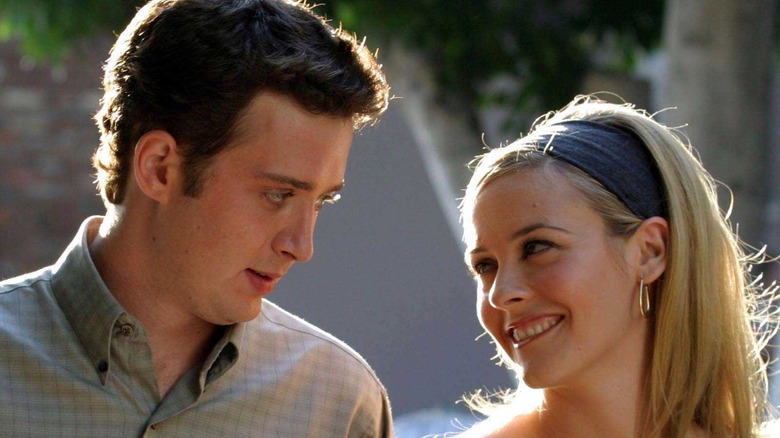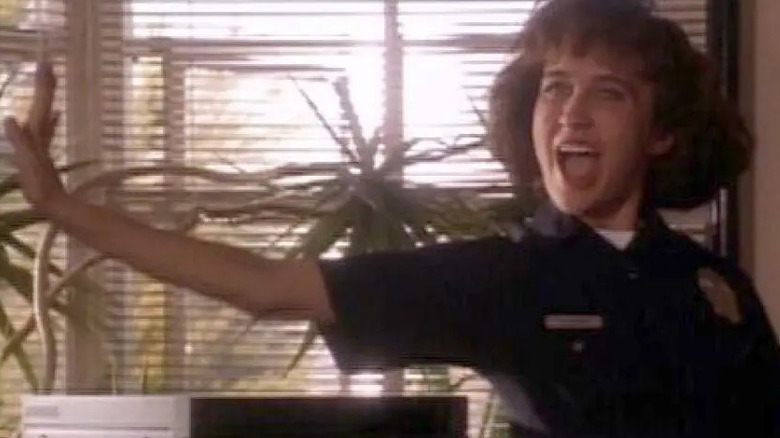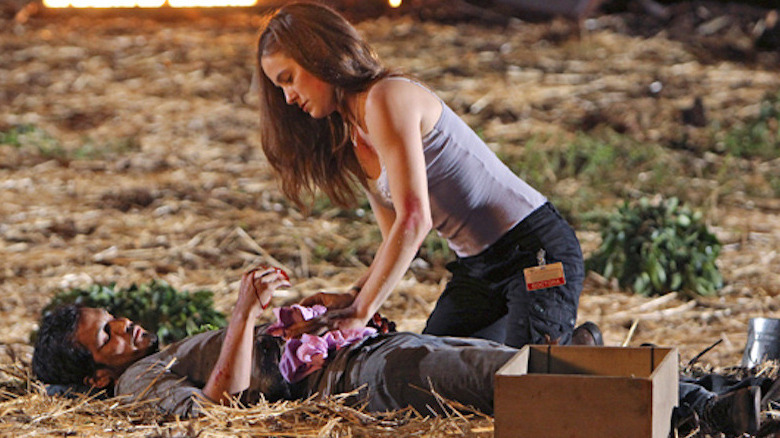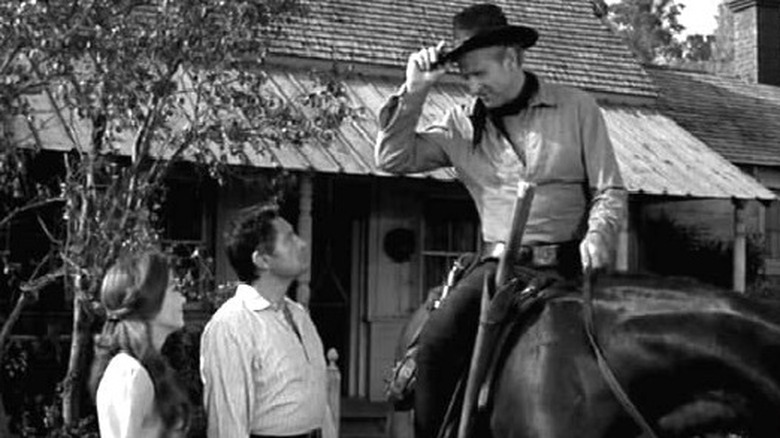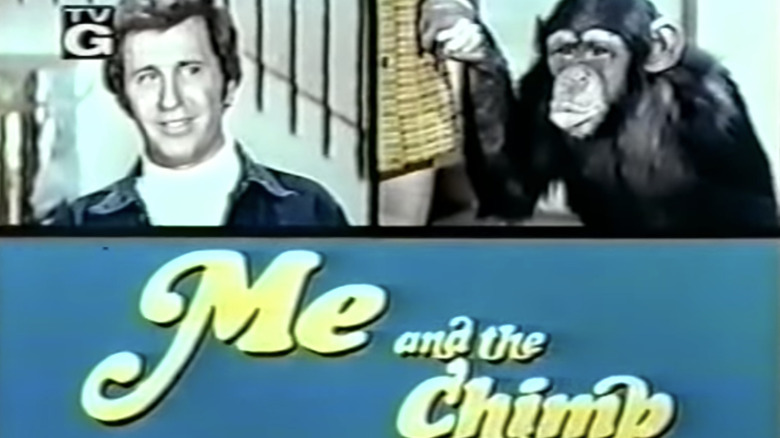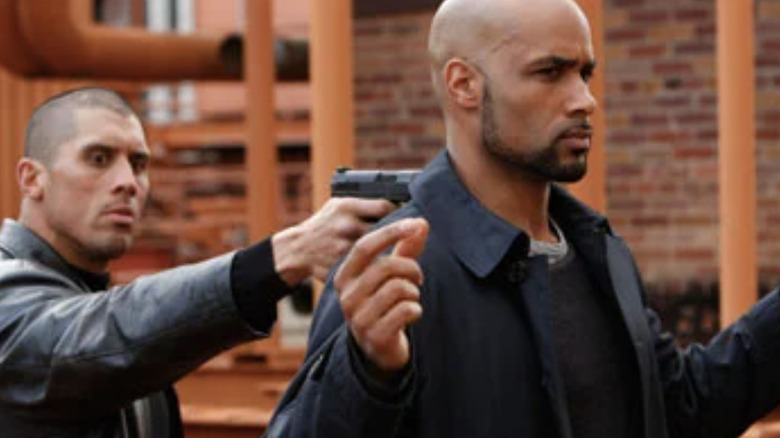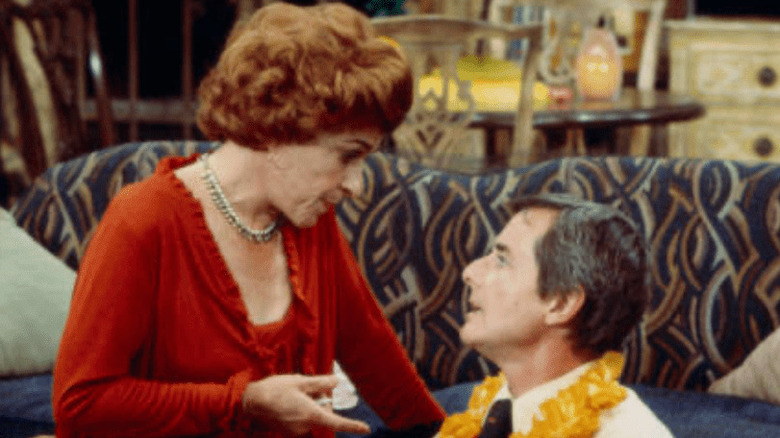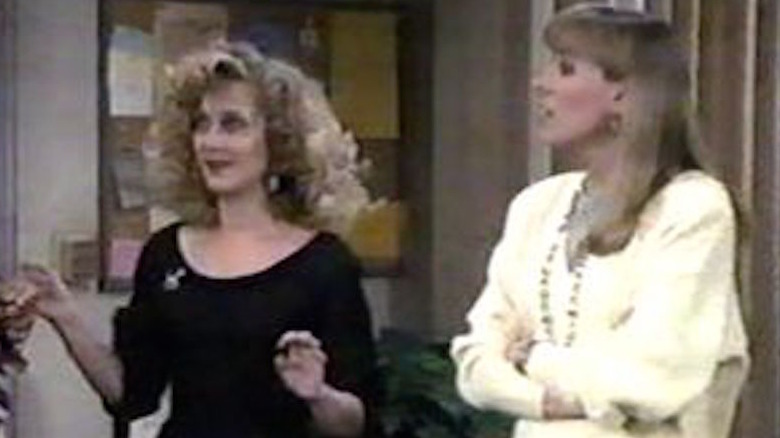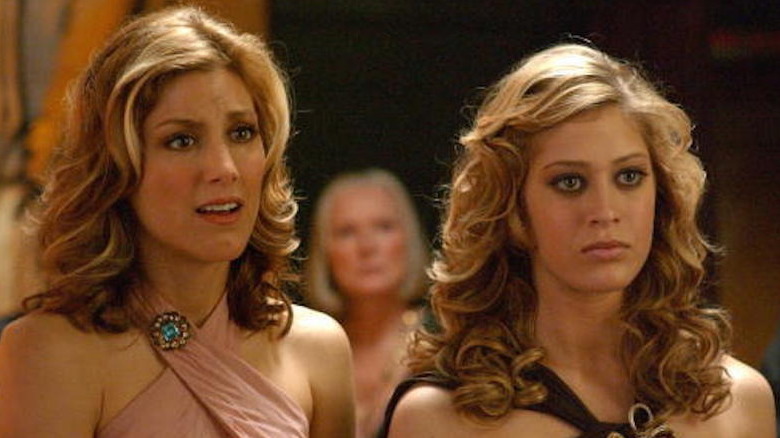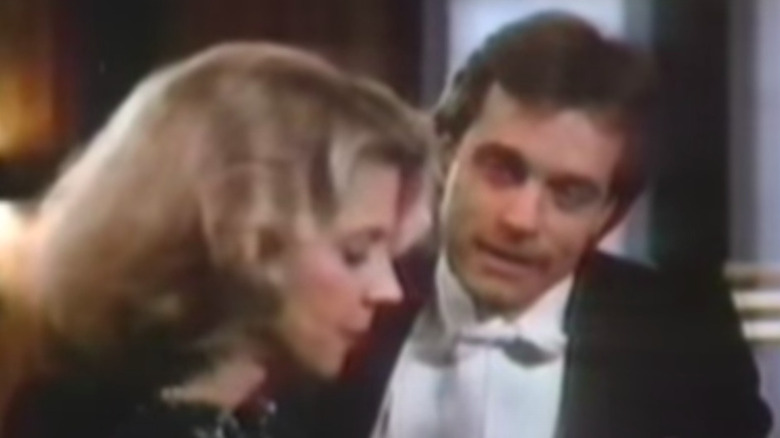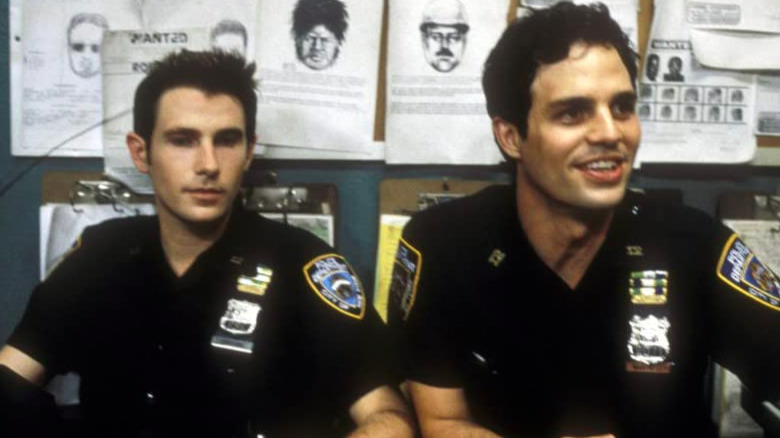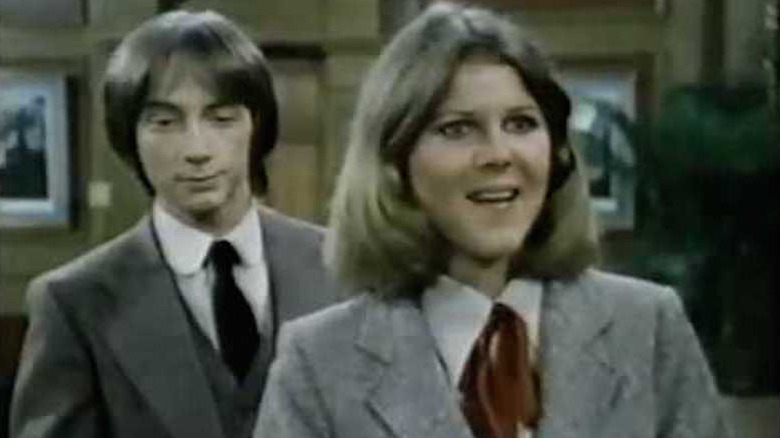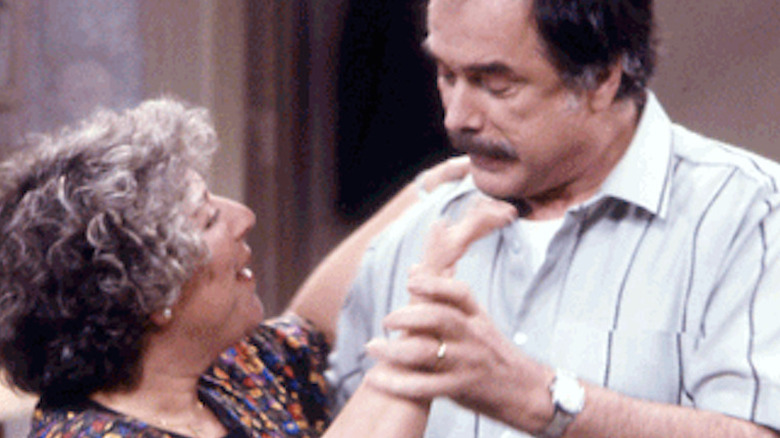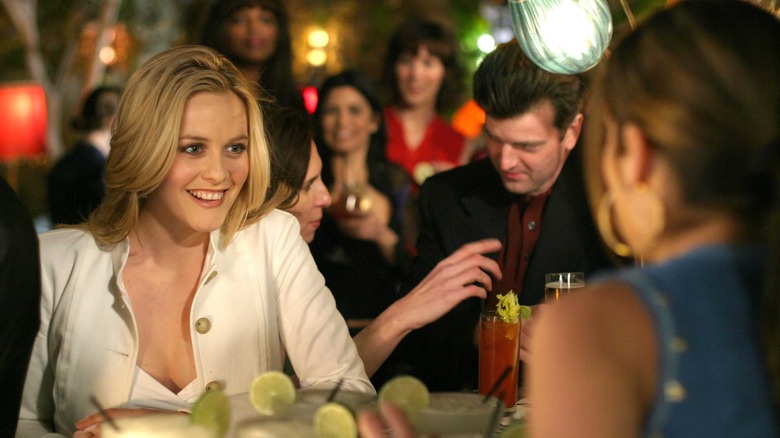Biggest Series Flops Of Legendary TV Creators
The history of television is littered with the corpses of failed series — programs that tanked due to low ratings, terrible content, schedule conflicts, or just plain old bad luck. Some of these failures have taken on second life as "how did this get made?" curios: Marvel's "Inhumans," "Viva Laughlin," "Pink Lady and Jeff," "Manimal," the ghastly reality series "The Swan," and "The Chevy Chase Show," for instance, all remembered for their spectacular flameouts and downfalls. The majority of TV flops, however, simply vanish from the public consciousness, remembered only by TV obsessives and a small but devoted cult of "bad TV" fans.
Other TV failures refuse to die because of the people who created them. Names like Bochco, Serling, Shonda Rhimes and JJ Abrams are responsible for some of the most beloved TV series of all time. How could the people who brought us "Cheers," "Happy Days," "Sex and the City" and "All in the Family" do anything other than hit home runs, every time at the plate?
Believe it or not, it happens. A casual look at the resumes of the most successful TV producers of all time inevitably turn up a couple duds, typically long forgotten and only glimpsed during comprehensive career retrospectives — causing people to look away in uncomfortable disgust, as if a long-exiled relative had shown up drunk to Thanksgiving dinner. Emmy winners, TV pioneers, creators of some of the most celebrated series in history — believe it or not, they've all made missteps. Below is but a sampling of such infamous flops, best left buried in the television graveyard.
Steven Bochco: Cop Rock
Although musical TV shows have become slightly less uncommon, and moderately successful, in recent years, Steven Bochco's "Cop Rock" was a near-total anomaly when it made its high-profile premiere ... and subsequent crash and burn ... on ABC in 1990.
The series was the definition of ambitious — a combination of Bochco's gritty procedural work on "Hill Street Blues," but with original songs and music by, among others, Oscar winners Randy Newman and Donald Markowitz ("I've Had the Time Of My Life") and Emmy winner Mike Post — but also had nominal support from Robert Iger, ABC's then-head of entertainment. Response from critics was cautiously positive, but as series star Ronny Cox told the A.V. Club, "For the average viewer 25 years ago, it was just a bridge too far."
For every heart-rending musical number, like drug addict Kathleen Wilthoite selling her baby to Newman's "Sandman's Coming," there were also those that simply landed with a thud, like the final number, "We'll Ride Again," which really did end with a fat lady singing. The curtain dropped on "Cop Rock" after 11 episodes, but not before it netted five Emmy Award nominations, including wins for music (Newman) and editing. When asked about its legacy in 2016, Bochco said to the A.V. Club, "It was not a successful graft [of music and drama], but it was a hell of a good try."
Shonda Rhimes: Off the Map
Having scored back-to-back hits for ABC with "Grey's Anatomy" and "Private Practice," the network was more than eager to have a new Shondaland production for its 2011 slate. The third time, however, would not be the charm.
"Off the Map" followed a group of seven doctors working (and frequently romancing each other) at a clinic in South America, and starred a pre-"Virgin River" Martin Henderson along with Bryan Fuller regular Caroline Dhavernas and "Grey's" alum Jason George. Rimes and Betsy Beers served as producers for the series, which was created by Rimes protégé Jenna Bans (who would go on to become the "Good Girls" showrunner).
Critics were not kind to the fledgling series, with the Hollywood Reporter's chief TV critic, Tim Goodman, labeling it "brutal" and Entertainment Weekly's Ken Tucker dismissing it as "'Grey's Anatomy' with flies." Ratings were initially modest — 7.57 million viewers helped the premiere win its time slot on January 12, 2011 — but audience numbers dropped off with each subsequent episode. By its 13th episode on April 6, viewership had fallen to 3.80 million. ABC soon yanked "Off the Map" from its schedule, leaving it as a one-and-done series.
Rod Serling: The Loner
Penned by Rod Serling while "The Twilight Zone" was still in production, the pilot for his Western series "The Loner," did not make it to television until a year after his iconic anthology series had been canceled by CBS. Despite clashes with executives over "Zone," the Tiffany Network picked up "Loner" for the 1965-1966 season; the series starred Lloyd Bridges as a former Union army captain traveling the West in search of a new life, and featured stories anchored around many of the social issues that fueled Serling's work. Episodes touched on subjects ranging from veterans' post-traumatic stress disorder to religious and racial intolerance.
"The Loner" earned critical praise but modest ratings; the real nail in the coffin was the network's dislike of the show's penchant for emotional drama over action. Serling was steadfast in his refusal to change the tone of his series, ensuring its demise. In an interview with The Philadelphia Bulletin (via RodSerling.com), Serling said, "I told (CBS senior vice president of programming Michael) Dann that if the network wanted a conventional Western with an emphasis on action and violence, it should have hired a conventional Western writer."
CBS pulled the plug on "The Loner" mid-season, mercifully allowing some remaining episodes to be filmed and aired.
Garry Marshall: Me and the Chimp
Garry Marshall has been associated with so many critical and audience favorites on TV — from "Make Room for Daddy" and "The Dick Van Dyke Show" to "The Odd Couple," "Happy Days," and "Laverne & Shirley" — that it's almost impossible to conceive that he generated some flops. It's almost a miracle that he and writer-producer Thomas L. Miller were allowed to strike sitcom gold with "Happy Days," as just a few years prior they co-created "Me and the Chimp," a 1972 CBS comedy with Ted Bessell of "That Girl," who handled the "Me" part of the title. The chimp element came courtesy of Jackie, a trained great ape who played Buttons, a space program contender who came to live with Bessell and his family.
Most of the series' 13 episodes revolved around Bessell trying to convince his family (which included Kami Cotler of "The Waltons") to integrate a large, highly intelligent ape into their suburban life. Naturally, Bessell's heart was eventually won over by Buttons, and he even pushed back when the government came to reclaim him. Critical loathing of "Chimp" was unparalleled ("a low-water mark in western civilization," wrote a pair of reviewers), leading to its swift demise after a single season.
J.J. Abrams: Undercovers
NBC undoubtedly felt that they had a hit on their hands when they added "Undercovers" to their primetime lineup in 2010. After all, it had many of the same ingredients as other successful series: the trifecta of J.J. Abrams and Josh Reims as co-creators and Abrams' frequent collaborator Bryan Burk ("Star Trek") as executive producer, a spy format not unlike Abrams' "Alias," and appealing, attractive leads in Gugu Mbatha-Raw ("Loki") and Boris Kodjoe ("Station 19"). "Undercovers" seemed like a sure thing, but less than two months after its September 22 premiere, the show was canceled.
Entertainment Weekly did its best to conduct a post-mortem on "Undercovers" to determine the cause of death. Its relative lack of a complicated storyline and any real star power were cited, but as the EW piece noted, neither of those factors hurt the very similar "Chuck" (which was already on NBC's lineup) or "Alias," "Lost," or the majority of Abrams' other small-screen efforts without marquee names. The culprit was simply a lack of viewership; "Undercovers" dropped from more than 8 million viewers in its first episode to drawing a 1.3 from the crucial 18-49 demographic for its November 4 broadcast. That's something even star power and scripting can't fix.
Norman Lear: The Nancy Walker Show
Emmy-nominated character actor Nancy Walker stole the limelight on a regular basis from her co-stars on two series in 1976 — she earned a wealth of laughs as Valerie Harper and Julie Kavner's acerbic mother on "Rhoda," and as Rock Hudson and Susan St. James' housekeeper on "McMillan and Wife" — so, it seemed only natural that Walker should earn her own series. That Norman Lear and Rod Parker served as co-creators of ABC's "The Nancy Walker Show" seemed to indicate that it would become a critical and audience favorite on par with their previous collaboration "Maude" (not to mention the long list of hits Lear had generated on his own). It was not to be: "The Nancy Walker Show" was canceled by midseason, delivering Lear a rare flop during a remarkably productive period in his television career.
The series, which found Walker's life as a high-powered talent agent upended by the retirement of her husband (William Daniels) from the Navy, had a solid cast — in addition to Walker and Daniels, James Cromwell co-starred as her son-in-law and TV vet William Schallert was a TV exec — and even featured one of TV's first openly gay regular characters in Ken Olfson's Terry, who shared Walker's apartment suite/office. What it didn't have was a viewership.
Walker, seemingly unfazed by its failure, segued directly into "Blansky's Beauties," a "Happy Days" spin-off created in part by Garry Marshall; the series, which found Walker as "den mother" to a gaggle of Las Vegas showgirls, featured several past and future "Happy Days" and "Laverne & Shirley" actors (Roz Kelly, Scott Baio, Pat Morita), but also failed to make it past 13 episodes. Walker soon returned to "Rhoda," and a long run as a TV commercial spokesperson for Bounty paper towels.
Charles/Burrows/Charles: All is Forgiven
The team of writers Glen and Les Charles and director James Burrows — collectively known as Charles/Burrows/Charles Productions — were the driving forces behind two of the most successful TV comedies of the 1980s: "Taxi" and "Cheers." So, it stood to reason that 1986's "All is Forgiven," a series produced by the team and created by Howard Gerwitz and Ian Praiser, should also find fortune with viewers. The New York Times, in its review, certainly thought so, noting that "Charles/Burrows/Charles appears to have come up with another strong contender for sitcom longevity."
Critical response to the series, which starred Bess Armstrong ("My So-Called Life") as the newly-married producer of a daytime soap and stepmother to teen Shawnee Smith (the "Saw" franchise), was exceptionally positive. The Washington Post singled out Carol Kane ("Unbreakable Kimmy Schmidt") playing the soap's giddy head writer among its many virtues, and praised the pilot's sharp writing. But "Forgiven," which debuted on NBC in March of 1986, was gone from the network's roster after less than two months. The team took a second hit the following year with "The Tortellis," a "Cheers" spinoff anchored around Dan Hedaya as Carla's addled ex-husband; it, too, fell to the axe after 13 episodes.
Marta Kauffman: Related
Along with David Crane, Marta Kauffmann created a bona fide pop culture phenomenon in "Friends," a series which seems to cultivate new viewers with each passing year. The pair also oversaw such series as "Veronica's Closet" and "Dream On," while Kauffmann went solo for the Netflix favorite "Grace and Frankie." Lodged somewhere between all of these efforts was "Related," a comedy-drama for The WB created by "Sex and the City" writer Liz Tuccillo and executive produced by Kauffman.
A talented quartet of actresses — Jennifer Esposito, Lizzy Caplan, Kiele Sanchez, and Laura Breckinridge — starred as sisters navigating life and love in Manhattan. The show veered from broad comedy (frequently handled by Caplan) to romance (Sanchez's on-off relationship with boyfriend Dan Futterman) and youth drama (anything involving Breckenridge), often within the same episode. But critics and viewers seemed to find the sisters' adventures mostly trying — the series ranks at 33% on Rotten Tomatoes — and it did not survive the WB's transition into The CW in 2006.
Bruce Paltrow: Tattingers
The NBC series "Tattingers" delivered not one but two flops for producer Bruce Paltrow. A prolific writer and director for television and later film — he would helm "Duets," starring his daughter, Gwyneth Paltrow — he also produced the well-loved sports/school series "The White Shadow" and served as executive producer on "St. Elsewhere" for NBC. In 1988, the network added "Tattingers," a comedy-drama created by Paltrow with Tom Fontana ("Oz") and John Masius ("Touched by an Angel"), to its primetime lineup on Fridays.
Paltrow's wife, Blythe Danner, and Stephen Collins starred as a divorced couple that were also partners in the titular restaurant, a once-grand Manhattan establishment fallen into disarray under new management. The pair resumed ownership of Tattingers and attempted to bring it back to its former glory while also dealing with their teenaged daughters, an eclectic staff that included Jerry Stiller (as the maitre'd), Rob Morrow (the bartender), and Mary Beth Hurt (the chef). There was also a drug dealer (Zach Grenier) with a score to settle against Collins, and the couple's own latent romantic tension.
The show's mix of ingredients, delivered with considerable zing by its cast, as well as New York locations and a parade of real-life celebrities as clientele, did not prove irresistible to audiences, and "Tattingers" was axed after 13 episodes. Given a rare second chance, Paltrow was allowed to rework the series as a half-hour comedy, which debuted in April 1989. The new series, titled "Nick & Hillary," retained most of its original cast but also added Chris Elliott as a "wacky" manager. The intent was to evoke the classic Hollywood screwball comedies of the 1930s, but the effort fell flat, and the premise was shown the door for a second time after only two episodes.
Tom Fontana: The Beat
Tom Fontana's hard-hitting television work includes the HBO series "Oz" (which he created) and writing and/or producing "St. Elsewhere," "Homicide: Life in the Street" and "City on a Hill," among many others. A three-time Emmy winner and four-time Peabody Award winner, Fontana has enjoyed extraordinary success in the television field, along with a few misfires. A number of these landed on network TV between "Oz" and his 2012-2013 BBC America series "Copper."
In 2000, Fontana created "The Beat," a UPN police drama starring Mark Ruffalo and Derek Cecil as New York City police officers. Despite a wealth of talent behind the camera, including Fontana's "Homicide" collaborators Barry Levinson, Eric Overmyer, and Irene Burns, the show was axed after only six episodes. Four years later, he reunited with Levinson and "Homicide" writer James Yoshimura for "The Jury," a Fox legal drama which starred Billy Burke ("Twilight"), Anna Friel and Cote de Pablo as New York lawyers and a rotating cast of guest stars as a new set of jurors in each episode.
"The Jury" also collapsed due to low ratings after 10 episodes, but Fontana pushed on; with TV vets Charlie Corwin and Jim Juvoven, he created the NBC drama "The Philanthropist," with James Purefoy as a billionaire who uses his wealth to change people's lives. The series, which also starred Neve Campbell and the late Michael Kenneth Williams, earned a mixed response and fell off the NBC roster after only 8 episodes.
James L. Brooks: Phenom
In addition to his status as the Academy Award-winning writer/director of such films as "Terms of Endearment" and "Broadcast News," James L. Brooks also wrote and/or created and produced some of the most acclaimed series in television history, including "The Mary Tyler Moore Show," "Taxi," "Lou Grant," and "The Simpsons." But as with many of the other talents on this list, not everything Brooks touched turned to TV gold. Case in point: "Phenom," an ABC sitcom which ran for a single season in 1993.
The series, created by Dick Blasucci, Marc Flanagan ("The Tracey Ullman Show") and Brooks' fellow "Simpsons" co-developer Sam Simon, starred Judith Light as the mother of a tennis prodigy (Angela Goethals) who juggled her daughter's emerging talents with the high-pressure demands of her charismatic coach (William Devane). The series opened to positive reviews and as the Los Angeles Times noted in 1994, ended its first season ranked 28th among primetime series. Brooks and his producing partners must have taken some solace in the fact that the show held nearly all of the viewership from its lead-in show, "Full House."
Despite those encouraging stats, ABC canned "Phenom" at the end of its first season. In a statement to the LA Times, a spokesperson for the network inferred that a combination of strong pilots and fewer available time periods may have contributed to its demise. Brooks countered with his own statement: "I have no comment while I'm developing the muscle to lie about my reaction to what ABC did."
The John Walter Charles Company: The Associates
At first, it seemed as if ABC had high hopes for "The Associates" when it premiered in 1979. The comedy series about newly minted lawyers was produced by the John Walter Charles Company, a production entity formed by former creatives from "The Mary Tyler Moore Show": James L. Brooks, David Davis, Stan Daniels, and Ed. Weinberger. Their first effort was "Taxi," which was a sizable hit for ABC, and the network seemed to believe that "The Associates" would follow suit. A bright, talented cast led by a pre-fame Martin Short, Alley Mills ("The Wonder Years"), and Wilfred Hyde-White, and positive early reviews further bolstered their hopes.
The network paired "The Associates" with "Mork & Mindy" as a one-two counterpunch to CBS's domination of the Sunday night lineup with the debut of "Archie Bunker's Place." But the move proved disastrous: "Archie" easily overpowered both series, and ABC scrambled to save "Mork" by moving it to Thursday, but left "The Associates" in the Sunday night slot, which proved its undoing. Only nine episodes of "The Associates" were screened prior to its cancellation; adding insult to injury for the John Walter Charles Company was the series' performance during the 1979 award season, which saw it claim two Emmy nominations and two Golden Globe nods, including Best Musical/Comedy Series.
Chuck Lorre: Frannie's Turn
Chuck Lorre's history in sitcoms has a humble beginning. Long before delivering a string of hits with "Two and a Half Men," "The Big Bang Theory," and "Young Sheldon," Lorre was given a chance to create his own series by Marcy Carsey and Tom Werner, with whom he had worked on "Roseanne." In 1992, Lorre delivered "Frannie's Turn" to CBS; the sitcom starred British actress Miriam Margolyes (Professor Sprout in the "Harry Potter" film series) as a New York housewife contending with headaches on various fronts. These included her macho Cuban-American husband (Tomas Milian), hapless kids, and a deluded boss (the late Taylor Negron).
The premise gave Lorre plenty of material to land all sorts of jibes on sex, marriage, age, and work, but after premiering the show on a Sunday, CBS dumped it into a lethal time slot — Saturdays at 8 p.m. — which had previously served as burial ground for network duds like the "Uncle Buck" sitcom and the animated "Capitol Critters." Mixed reviews didn't help the case for "Frannie," and the series was sent packing after only five episodes. Lorre's other notable flop, the cannabis company comedy "Disjointed," ran for 20 episodes before Netflix brought it to a close.
Darren Star: Miss Match
For all intents and purposes, "Miss Match" should have been a hit. The 2003 NBC series, created by Darren Star of "Sex and the City" fame, along with Jeff Rake ("Manifest"), enjoyed both positive word-of-mouth — Entertainment Weekly pronounced it one of the season's best new series — and critical praise (83% on Rotten Tomatoes). It also had an unimpeachable cast led by Alicia Silverstone, who earned a Golden Globe nomination as a lawyer turned match maker, and support from Lake Bell, David Conrad, and a very funny Ryan O'Neal as Silverstone's dad. The guest cast included such favorites as Bradley Cooper, Nathan Fillion, and Jenna Fischer. So why did "Miss Match" last only a single season?
The answer, most likely, was ratings. EW went from listing "Miss Match" as Best New Series to Don't Blink and You'll Miss It in less than two months after its premiere in late September. Ratings dropped precipitously over the course of just 10 episodes, and the one-two punch of its Friday night time slot and its network competition ("Joan of Arcadia") helped to polish it off by the 11th episode, with six additional episodes going unaired. The television graveyard is filled with great series that couldn't go the distance, and "Miss Match" was one of them.
